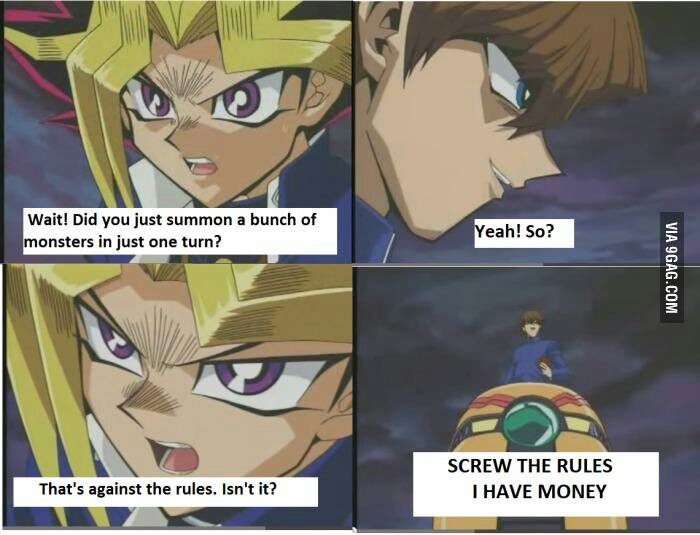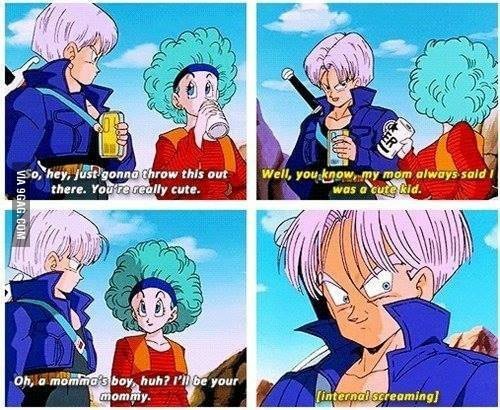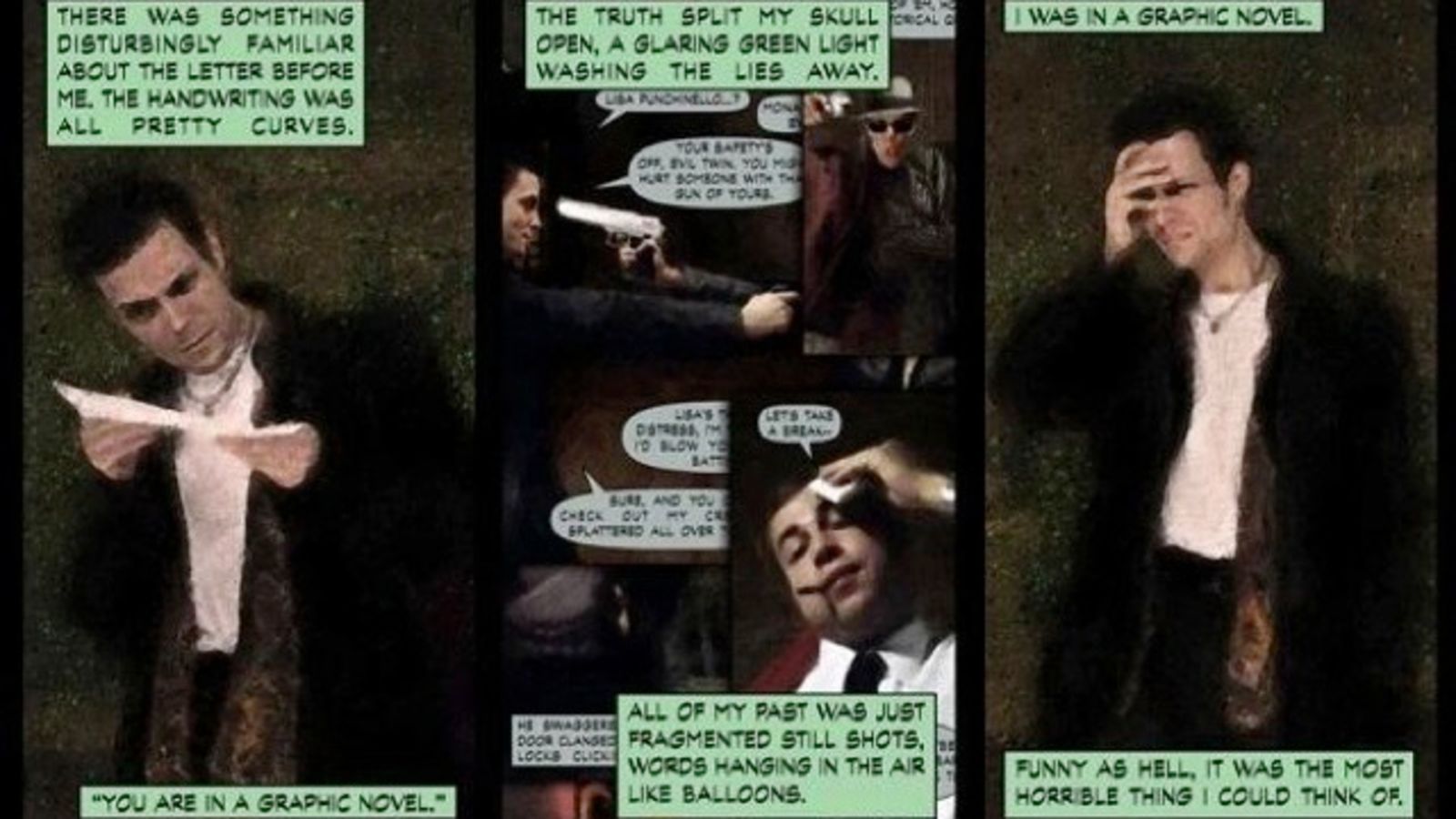This article contains spoilers for Max Payne’s story.
Just over 13 years ago, on July 14th 2006, the very first episode of Yugioh: The Abridged Series was released. It was the beginning of a very special expression of fandom. The gist behind an abridged series is you cut out the chaff, usually about 75% of the episode. You then redub every single character with your amateur imitations and cram in as many soon to be dated pop-culture references as you can. Finally, and most importantly, you insert relentless mockery of every aspect of the show you’re abridging, from plot to characters to dialogue.
When we think of satire, we usually think of it as a clever way to attack our opponents. Jonathon Swift, Stephen Colbert and Sacha Baron Cohen all pretend(ed) to be something they’re not to demonstrate the absurdity of their opposite’s opinions. But abridged series aren’t about destroying the foundations of the tv show they’re mocking - they’re about elevating it in spite of (and sometimes because of) their many flaws. The people who love the show the most are the ones making these videos, not the haters.
When your show makes no sense, you get to be creative in explaining it away.
The thing that separates an abridged series from other expressions of fandom is that they eventually evolved into something more than just a string of jokes. The earlier episodes of most abridged series are simple, crude and stupid. They have more in common with /tv’s dub of the plane scene from Dark Knight Rises or r/freefolk making a Robert Baratheon shitpost than anything more meaningful. But as these series progressed and the characters started to take shape, a core of humanity began to emerge.
Anyone can make fun of Yugioh for being about adults playing a children’s card game. Anyone can mock Dragonball Z for the constant stupidity of its characters in letting their opponents power up. But it takes a true fan to sell Vegeta’s prideful rage as he unleashes his final flash attack against a newly created Perfect Cell. And as silly as it seems, this moment from the Yugioh Abridged movie still sends shivers down my spine. The shows may still be rooted in humour, but we have grown to care about the characters and their struggles.
Somewhat paradoxically, the constant humour serves to underline these impactful character moments. On some level, all fans are aware of the sheer ridiculousness of the shows and series they love. As they create art, browse forums, argue with friends and share memes they grow an understanding of irrelevancies and limitations of what they’re watching. But critically, they love it anyway. And that’s exactly what an abridged series demonstrates - these people, with intimate understandings of every line of dialogue, who stuff every episode full of jokes, love the show enough to give it these heartfelt and emotional moments.
DBZ Abridged was always slightly more risque with its humour.
And I think it's for this reason that Max Payne’s cliche ridden story works. The story of Max Payne is derivative, filled with cute references and liberally copy and pastes from many other crime films, but is somehow still an enormously enjoyable tale. It stands out all the more so because of how universally terrible game stories tend to be. Max Payne isn’t quite an abridged series, but it is quite clearly a story written by FANS of the genre.
Max Payne isn’t by definition a private eye, but he is forced to act alone. He's a hardboiled detective with a dark past scribbled on his stupid looking face, a meeting point between Watchmen’s The Comedian and Rorschach. This character is revealed to us through his narration of the story, using the style established in the classic noir of Sunset Boulevard or Double Indemnity. Metaphor and simile are used every second sentence, relayed in a sarcastic drawl, his cynicism on display for all to see.
“The cops arrived, sirens singing in the off-key harmony of a manic depressive choir”.
It's laughable at first blush. He can’t even talk about car sirens or the snowstorm outside without dipping into yet another poetic likeness. But it's underwritten with the humanity that shows when his facade begins to crack.
He boasts: “Staggering on the mill roof in ice and snow and wild wind, I was a ninja, my kung fu was strong”. But then immediately admits: “I wasn’t kidding anybody. At best I was Superman on Kryptonite”.
Or take my favourite moment, when he delves through Valkyrie’s files.
‘’Just when you thought you had reached the deepest depths of horror, it suddenly got worse. How to turn off that small voice inside your head that started to whisper that you should be glad that now, if not before, your revenge was justifiable on any conceivable moral scale? That small voice proved, beyond any doubt, that I was damned.’’
Now we just wait for the pop tarts.
Max Payne may speak in a silly way. But it’s coping method to somehow deal with the fact that his dream life, with his beautiful wife and newborn child were ripped away from him. Max Payne is hurting incredibly badly and he covers it up with wisecracks the entire way through. So you feel for him when he gets overwhelmed, and he shows the slightest hint of the pain he’s feeling.
And this is Pain as in ‘Payne’, of course - the cheesiness of the story isn’t contained to just the narration. What’s the healing item in this game called, where the protagonist's name is only one step removed from being found on a hairdryer? They’re called painkillers.
The locations are a pastiche of famous places in movies. You move from the Scarface mansion to the Matrix lobby with barely a blink. You see an uzi on the counter as someone is in the loo (Pulp Fiction) and someone even has a stake in their chest with ‘Buff’ written in blood (Buffy the Vampire Slayer). At one point you even overhear two mobsters discussing their favourite films, including Butch Cassidy and the Sundance Kid, The Usual Suspects and Seven.
References are not enough to make something great though, or else Family Guy would be revered as the high point of all artistic creation (shudder). Max Payne goes a step further, something only fans would be able to do, and mocks itself. When you get to the drug crazed maniac’s domain, Max has this to say:
The only enjoyable part of the horrific nightmare sequences.
“After Y2K the end of the world had become a cliche. But who was I to talk, a brooding underdog avenger alone against an empire of evil, out to right a grave injustice. Everything was subjective. There were no personal apocalypses. Nothing is a cliche when it’s happening to you.”
When Payne starts an unwanted drug trip of his own, he starts to see strange things…
“There was something disturbingly familiar about the note on the desk. The handwriting was all pretty curves. The truth was like a green crack through my brain. Weapon statistics floating in the air, glimpsed out of the corner of my eye. the repetitious act of shooting, time slowing down to show off my moves. The paranoid feeling of someone controlling my every step. I was in a computer game. Funny as Hell, it was the most horrible thing I could think of.”
Max Payne succeeds as a homage to the neo-noir genre because of its willingness to commit to a little bit of self mockery. It knows that its cheesy and its aware of the absurdity of one man gunning down hundreds - but it wants you to be in on the joke as well. It might sound like Max is narrating to himself, but really he’s speaking directly to the player, as we go along with him on his night from hell.
I said in the cast that Max Payne can never be a classic in its own right, and I stand by that. Its ultimately too derivative - it lacks the spark of originality to make it truly stand out. But I adore Max Payne, because it's so obviously a love letter to one of my favourite genres - the people who made this love neo-noir, warts and all, and I feel exactly the same about this game that they’ve created.





